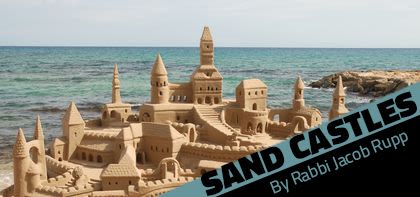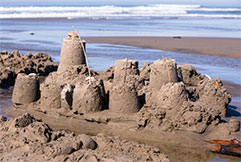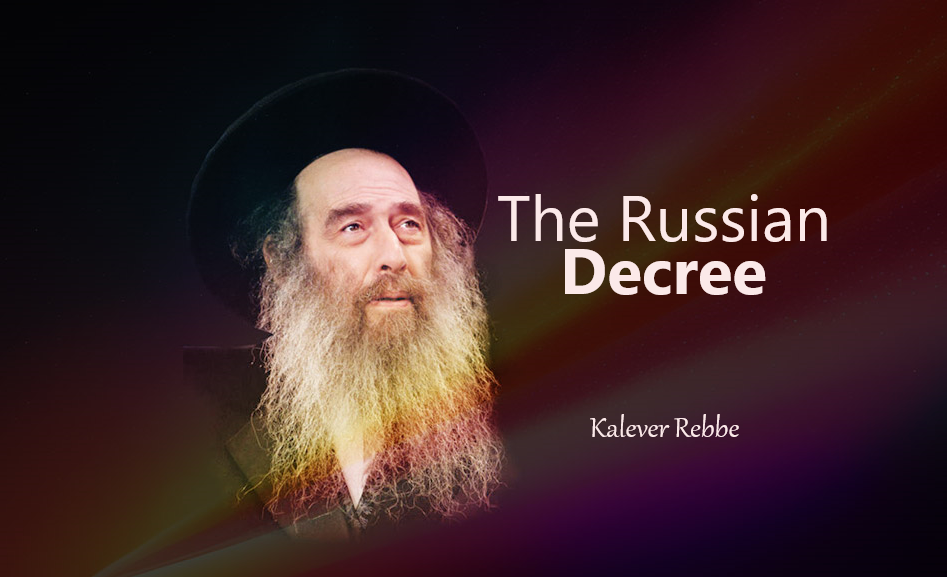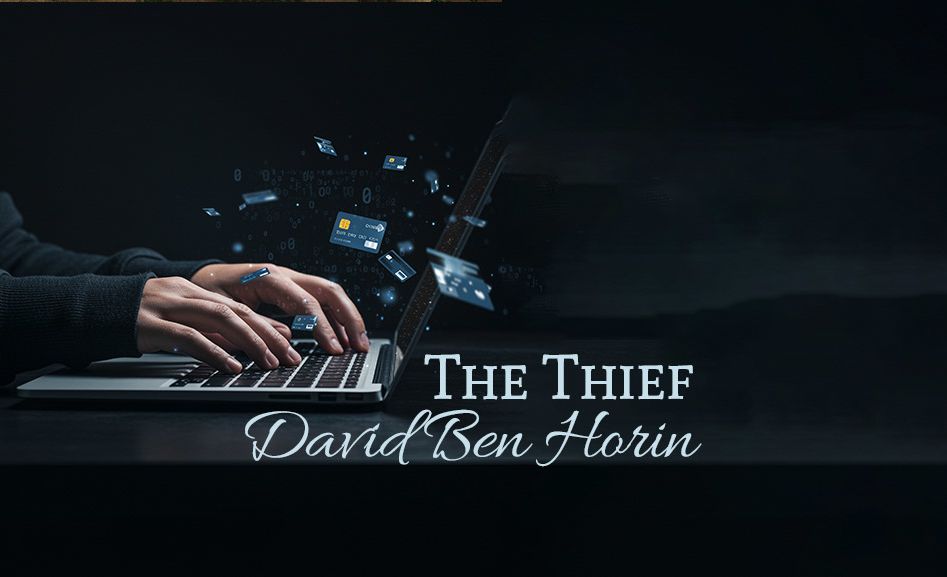
Sand Castles
If we are only focused on the material, we can only sand castles that don't last very long, destroyed almost immediately after we leave the beach…

Stability isn’t a commodity these days. We are surrounded by innovation, changes, political upsets, and novelty. A brief look at the news shows both unspeakable tragedies and amazing victories in quick succession.
Worldwide, the Jewish people are reflecting on more timeless transitions. From being free to enslaved, and then free again, having become a nation with a national responsibility as the Chosen People.
How did the Torah Greats handle transitions and what can we learn from them?
Imagine Jacob on his deathbed; peering up at the twelve tribes. Jacob had been through unbelievably painful trials and tribulations in his life. No one would have blamed him for things not turning out right. And, in fact, as he looked at his children he wondered if he had made a mistake and some of them were not as righteous as they could be.
The great men who would build the tribes of Israel responded with the famous words of the Shema. “Hear O Israel, the Lord is Our G-d, the Lord is One.” Despite Jacob’s rocky and challenging life, he had successfully transmitted what mattered most; the Jewish mission. Life threw him this way and that; but Jacob stayed true to the course of his forefathers.
The longest concrete pier in the world is located here in San Diego. It seems to go on forever—and as you walk out over the ocean you see beneath you the various transitions along the shore.
First, you walk over the waves crashing on the sand. A bit further out, you walk over the water rolling  towards the shore. Then there are the surfing spots where the biggest waves crash into the water. A few hundred feet beyond that, swelling ocean to produce those waves. And then finally, the calm water where everyone fishes.
towards the shore. Then there are the surfing spots where the biggest waves crash into the water. A few hundred feet beyond that, swelling ocean to produce those waves. And then finally, the calm water where everyone fishes.
For a person standing in the surf, it’s hard to conceive that further out, there are hardly any waves. For a person that only sees where the water meets the shore it’s hard to imagine that the ocean could be calm, and the place to fish is in those calm waters away from the shore. Both extremes, in one body of water.
Life is the same way. We can get lost in the surf; just trying to get over and ride each wave as it comes to shore. Sometimes the waves pull us, sometimes they push us, sometimes they crash over our head and it’s hard to breathe. It’s beautiful to look at and fun to play there but eventually it’s unsustainable. Either you wander back to land or go deeper to sea.
If we are always focused on the day to day we can only build sand castles—edifices that are put together with a hodge-podge of tools that we know will be destroyed after we leave the beach. The legacy of our Judaism and our great leaders was that they wandered deeper into the ocean unaffected by the waves. There is a place where the water isn’t crashing. And there you are overcome by just how expansive the water is—looking deeper at the human experiences once you leave the day to day there are fundamental needs and fundamental responsibilities.
We all want to matter. We all want to connect to that which is bigger than us. We want to leave a legacy that isn’t a sand castle. As we say during the High Holidays. “We are like a broken shard, like dry grass, a withered flower, like a passing shadow and a vanishing cloud, like a breeze that blows away and dust that scatters, like a dream that flies away. And G-d is FOREVER”
The challenge for us is that we have that piece of G-d inside and want to be bigger than our limited circumstances. The solution is to look past our circumstances to the piece of the eternal in us; the expansive ocean beyond the surf. There, the ups and downs of life are immaterial as we are pushing for something bigger. Can we embody G-d? Can we live a life of Eternity? Can we be bigger?
The Torah provides countless examples of great people who had unbelievably hard lives. The reason for that is to show that having a smooth life isn’t a prerequisite for transmitting eternal values and living your spiritual potential. It just requires the perspective that we have to push past the ups and down and try to get to a place where the water is expansive and smooth; a place where the values and perspectives are beyond time and space.
* * *
Jacob Rupp is a rabbi, speaker, author, coach, and Director of San Diego NCSY.











Tell us what you think!
Thank you for your comment!
It will be published after approval by the Editor.